
This mini-post is part of a series looking for alternatives to the Prisoner's Dilemma when introducing game theory. It summarises and links to the many posts where we've used this simple game already.

In this game, you are given $10. To keep the money, you have to give a portion of this $10 away to another player. If we take the contained, rational and self-interested assumptions of game theory, the dominant strategy is simple: give the other player as little as possible. The catch is, if the other player rejects your offer, you both get nothing. This is the Ultimatum Game, a form of take-it-or-leave-it bargaining.
The Ultimatum Game is a powerfully simple game theory scenario because it introduces a number of key concepts. This is why it has appeared in numerous posts here at nonzerosum.games.



As a freelancer filmmaker, I deal with take-it-or-leave-it bargaining every few months. I'll state my fee and if a producer accepts then I'll take the job, if not, I won't. But in a small industry, often I'll take a lower offer to build a relationship with someone I enjoy working with, so the dynamics of iterated games come into play. Flexibility and acknowledgment of externalities (future jobs, a harmonious working environment) become (rational) factors—but don't tell my clients this!

Ultimatum games are prevalent in our lives because, no matter how you slice it, every negotiation comes down to a final offer. It's where things get real, and so our behaviour when faced with such an ultimatum reveals a lot about what we really want, and what motivates us. If you’ve been following our quest for a new poster-child of game theory—one that captures the interplay of strategic rationality and human fairness—you can't go past the Ultimatum Game.